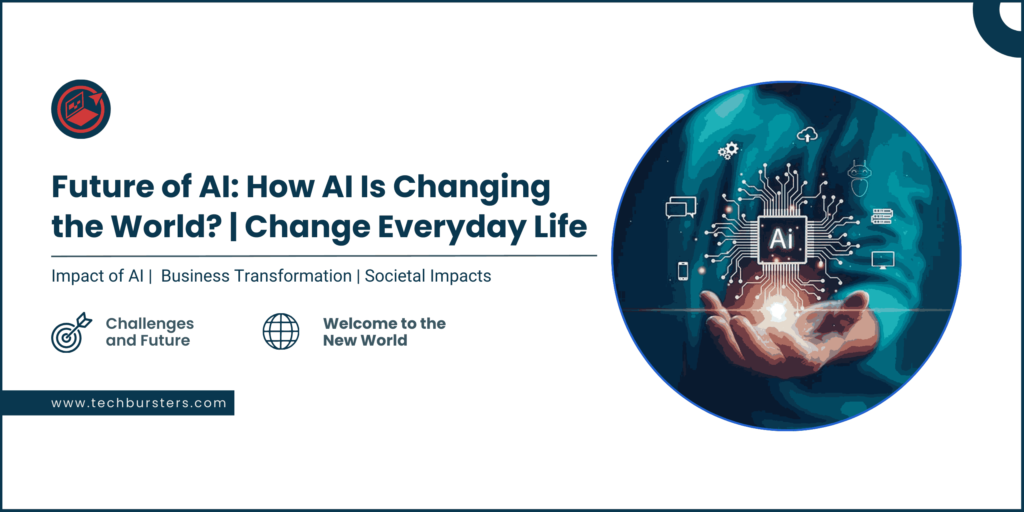
Artificial Intelligence (AI) is a system able to carry out activities that normally need human intellect like the acquisition of information, reasoning or even solving problems.
AI is revolutionizing industries around the world, simplifying operations and increasing efficiency using automated systems. In this way, Artificial Intelligence is changing the face of technology and the development of business strategies as it can sift through a large volume of data and decide accordingly.
Artificial Intelligence (AI) is helping man in every field like increasing efficiency, reducing human errors, etc. Making informed decisions or innovating rapidly is made possible due to its fast analysis of complex datasets by businesses in various fields. AI has changed how we live, and our relationship with technology, as well as redefined work environments ranging from personalized health to smart urban centers.
The Impact of AI on industries
1) Healthcare
AI is transforming healthcare by improving diagnostic accuracy in image analysis and health-conscious patient data interpretation. Also aiding treatment planning is providing personalized medicine based on genetic profiles and health records.
In addition, accelerating medical research is the capacity to analyze vast datasets to identify patterns and potential treatments much faster than ever.
2) Finance
In finance, you will find artificial intelligence algorithms on automated trading systems that carry out transactions at speeds and frequencies that humans can not imagine. It enhances risk management through the use of predictive analytics methods that spot likely fraud and anomalies as they occur. AI also enables personalized finance offering specific counsel and market trend-based investment to individual customers.
3) Transportation
AI-optimized routes and schedules to aid in transportation, reduce congestion, and enhance transportation safety through predictive maintenance and autonomous vehicle technology. It greatly improved storage and transport management by foreseeing demand changes, optimization of stock levels, and timely delivery guaranteeing minimum environmental pollution.
4) Education
AI transforms education through personalized learning experiences provided by AI tutors and adaptive learning platforms. It does this by evaluating student performance data hence offering targeted measures to assist teachers improve on teaching outcomes and student commitments. On the same note, education has been made accessible all the time from any point by artificial intelligence due to its role in online classes among other things.
AI and Business Transformation
1) Automation
Automation sustained by AI simplifies workflow by enabling itself to carry out repetitive activities, hence reducing errors and, at the same time enhancing efficiency in operation in all industries.
This allows humans to focus on innovation and strategic thinking, meaning high output and competition advantage, which is achieved through its ability to minimize the tedious tasks ( for example: software coding) that take longer periods compared to those performed by people.
2) Customer Insights
Artificial intelligence processes large sets of customer data to anticipate behaviors, tastes, and emerging patterns, thereby allowing firms to personalize advertising approaches, enhance customer interactions through the use of chatbots or virtual assistants, and build more robust customer ties by taking into account specific requirements and comments.
3) Decision Making
This intelligent analytics system allows firms to forecast price fluctuations by providing them with current data about how shoppers act in a specific place or how well their business is going in terms of execution.
Hence, they can identify any forthcoming trend before they materialize it as well as distribute their resources efficiently therefore moving fast towards unfurling competition within the environment and changing market circumstances.
Good to Read:- A Complete Guide On Artificial Intelligence for Beginner
Societal Impacts of AI
1) Employment
AI integration could alter old job roles while opening up fresh opportunities in AI development, data science, and tech support. Developing skills that are essential for the future’s economy driven by AI will require reskilling and upskilling programs targeting workforce preparations for tomorrow.
2) Ethics and Regulation
In the development of AI, it is important to take into account ethical issues like dealing with discriminative algorithms, ensuring the privacy of data, and upholding the transparency of decision-making processes within this technology.
There is a need for regulatory frameworks that will help guide those using AIs so that they can be held accountable when using them thus ensuring trust remains intact within society.
3) Cultural Shifts
AI can shape how people feel about technology and automation in our society. Moreover, AI can be seen to raise questions about the morality of such applications in medicine or the loss of individual rights in intelligent towns and cities. Besides, it can also lead us into deeper conversations regarding how fast we should advance in technology versus humanity’s traditional ways of living.
Challenges and Future Outlook
1) Technological Advancements
Advancements are continually happening in AI technologies for instance deep learning as well as natural language processing and these developments are believed will help realize breakthroughs in healthcare, and robotics among others. There is a need for more research funding investment to understand AI capabilities beyond its current constraints fully.
2) Addressing Bias and Fairness
When using AI algorithms, it is important to decrease biases and guarantee fairness in the decision-making processes, because this is what ethical deployment of AI entails. There is a need for cooperation among industry players, researchers, and policymakers to establish norms and guidelines that encourage impartiality when using artificial intelligence.
3) Collaboration and Research
AI capabilities, global problem solutions, and AI-responsible policy shaping require working together across borders and fields. AI transformative role achievement is possible if all of us combine our efforts and at the same time we can survive morally, legally, and socially to be relevant in the future.
Good to Read:- How Artificial Intelligence Is Different From Machine Learning?
Conclusion
Artificial Intelligence (AI) is the basis of several innovations such as automating tasks to enhance efficiency and bring in other innovations Artificial intelligence has touched sectors like health, finance, transport, and education where it has brought massive progress and development When it comes to processing speed up as well as accuracy in procures; this ability of AI cannot be compared to any other technology due to highly computable data analyses made by the system.
This evolution in AI will never stop increasing, dictating how work, society, and technology will shape in time to come. Transitions of AI into our daily tasks are introducing some significant issues that demand certain ethical and legal standards for its responsible application. So to reap the advantages of AI while addressing any problems associated with it, it will be crucial for organizations to strike a balance between the two.
Frequently Asked Questions FAQS
- What is artificial intelligence (AI)?
Artificial intelligence (AI) is the simulation of human intelligence in machines used to learn and solve problems.
- How is AI impacting industries?
Artificial intelligence is transforming sectors by automating operations, enhancing efficacy, and supporting data-informed choices.
- Why is AI important in healthcare?
Healthcare now uses Artificial Intelligence to perform fast diagnostics, deliver personal treatment programs, and modernize research processes in the healthcare sector.
- What role does AI play in business transformation?
AI leads to business change through automatic processes, understanding customers’ needs, and improved ability to come up with solutions.
- What are the societal impacts of AI?
Artificial Intelligence affects job trends, raises moral questions, and encourages technologically oriented cultural changes.
